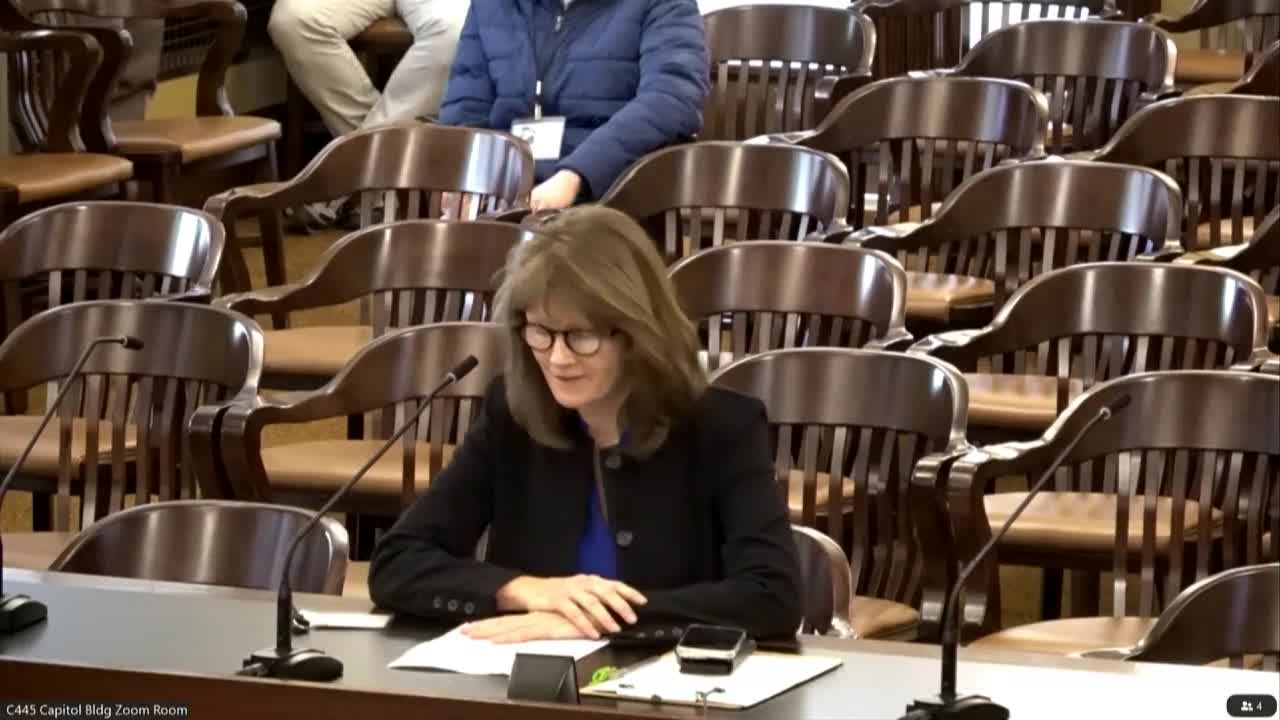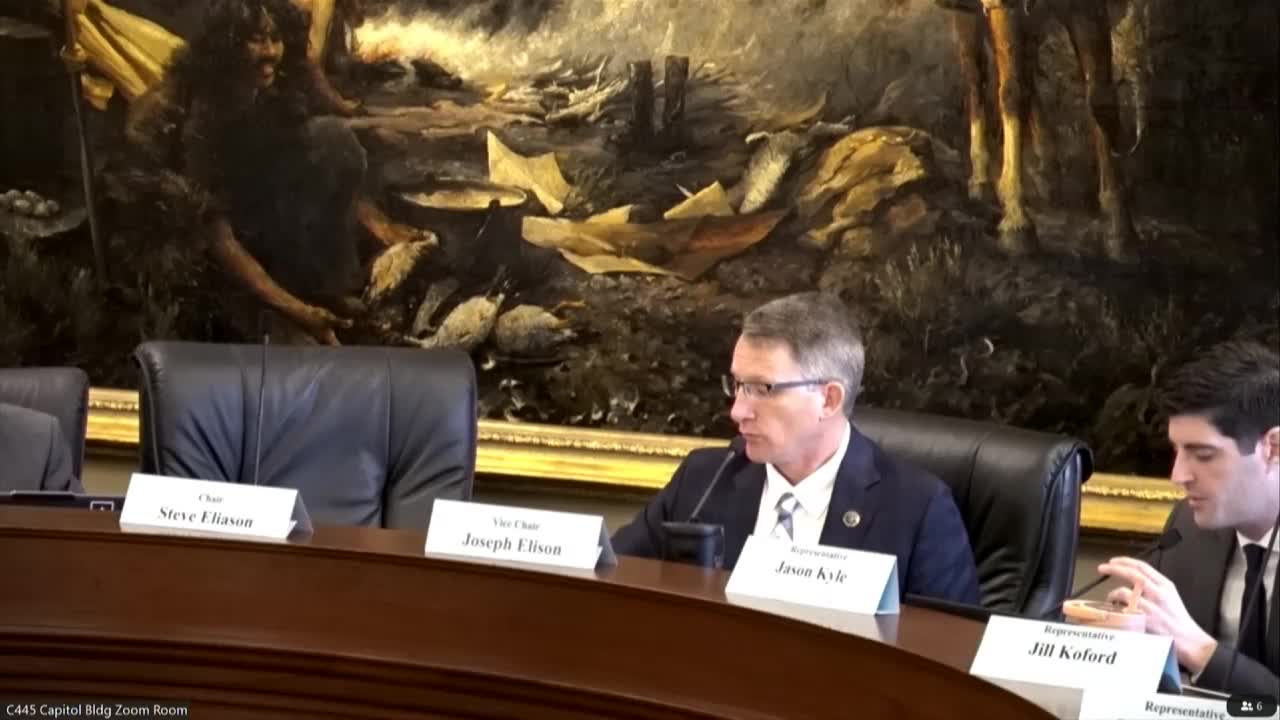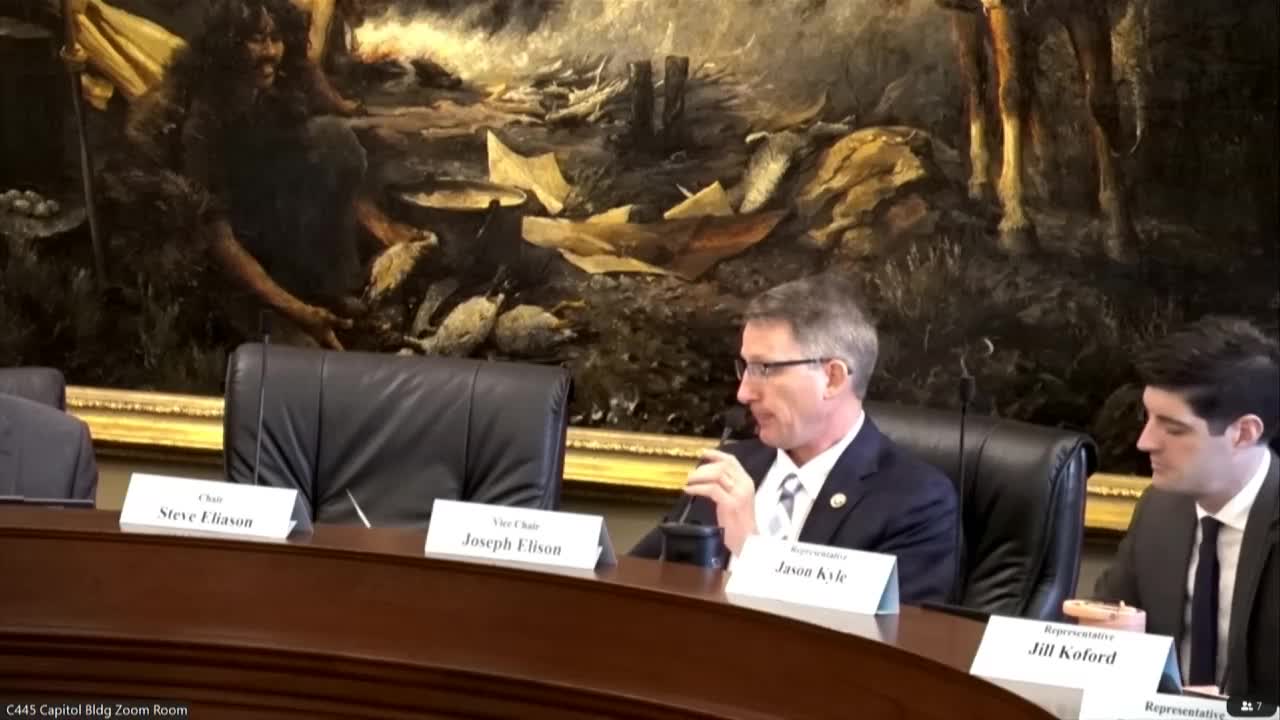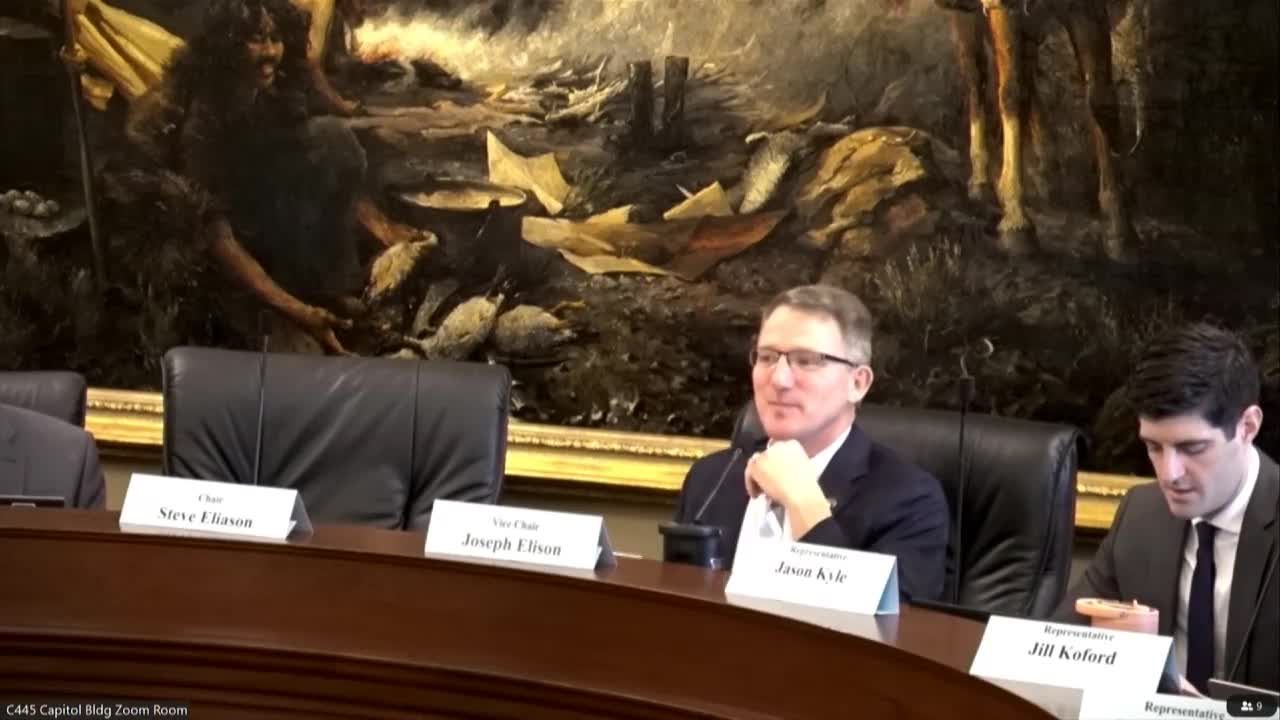Article not found
This article is no longer available. But don't worry—we've gathered other articles that discuss the same topic.

Committee favors informational organ-donor language on tax return packet; bill added to consent calendar

Committee approves clarifying watercraft registration, expands grant use and updates vehicle definitions

Representative seeks interim study on rising property taxes after lawmakers hear testimony

Committee sends reduced income tax cut to next stage after divided public comment

